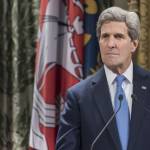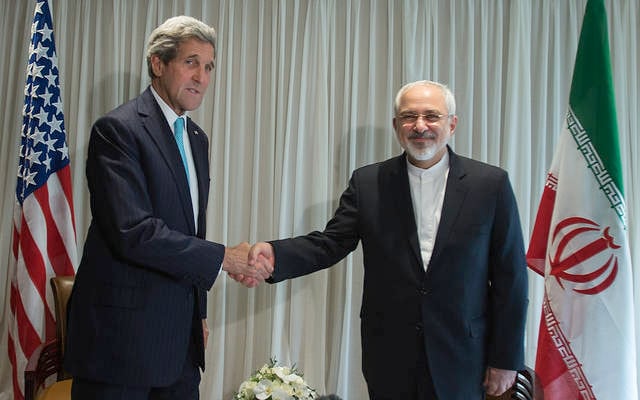Following what they say was a productive round of negotiations, US State Department officials are optimistic that a nuclear agreement with Iran will be achieved before the March 31 deadline.

Secretary of State Kerry. (Frederic Legrand – COMEO/Shutterstock)
US officials are optimistic that a nuclear deal could be reached with Iran by the March 31 deadline. Secretary of State John Kerry is currently in Lausanne, Switzerland, for a final round of negotiations with Iranian Foreign Minister Javad Zarif.
A senior official at the State Department told reporters on the way to Switzerland that the P5+1 is optimistic after significant progress was made during the previous round of negotiations. “We made more progress in the last round than we had made in the previous rounds, which often happens once you’re getting closer to a deadline, I would say. And we can see a path forward here to get to an agreement. We can see what that path might look like. That doesn’t mean we’ll get there. And I think if you asked many people in the delegation, we truly do not know if we will be able to do this. But I do think it’s important that we see a path forward,” he said.
In light of reports about tensions between members of the P5+1, most notably the US and France, the official said, “I think you heard the secretary’s address when he said we are all unified in our approach. Another senior State Department official in the past has said to you all that obviously we all have national positions but that we are unified in our approach.”
France is believed to hold the toughest position among the members of the P5+1. The country is concerned that the nuclear deal currently being drafted lifts sanctions on Iran too quickly and leaves too much of Iran’s nuclear infrastructure intact. Foreign Minister Laurent Fabius phoned the French negotiating team during the last round to demand that they refrain from making any more concessions to Iran.
The official refused to speculate on what would happen if negotiations fail. “I think it’s fair to say that we will have people in Lausanne and in Washington who are looking at the different possibilities and scenarios for what might happen…. But we very much believe we can get this done by the 31st. We see a path to do that,” he said.
British Foreign Minister Philip Hammond warned of the dangers of failing to reach an agreement. “I remain clear that no deal is better than a bad deal. But we should also be clear-eyed about the alternative,” he said during a speech in London. “No deal means no restrictions on enrichment, no restrictions on research and development and no independent monitoring or verification. It means a fundamentally more unstable Middle East with the prospect of a nuclear arms race in the region.”
By United with Israel Staff
